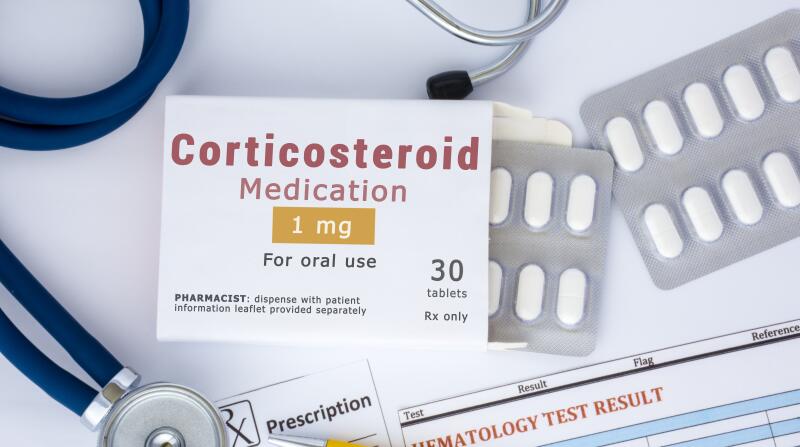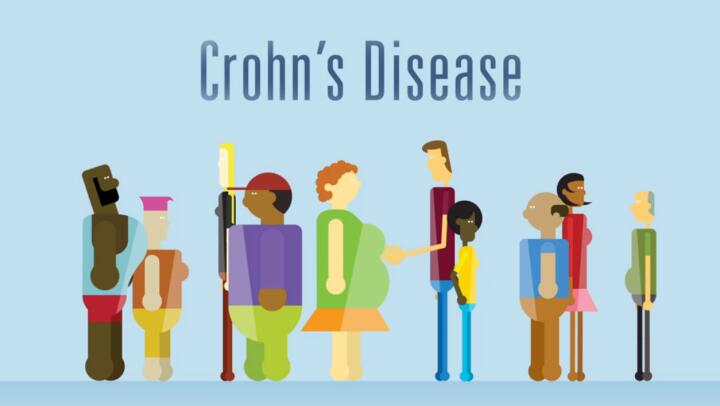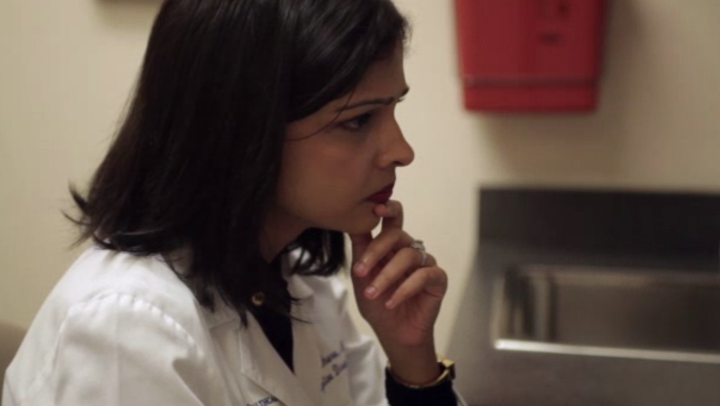5 Signs It’s Time to Try a Biologic for Ulcerative Colitis

Medically Reviewed By William C. Lloyd III, MD, FACS
Written By Erin Azuse, RN on April 9, 2021
-
 Do you need a new ulcerative colitis treatment?If you have ulcerative colitis, you probably take one or more medications to treat it. Ideally, the right treatment will resolve your symptoms of ulcerative colitis and keep them from returning. But your disease can change over time, and your medications may need to be adjusted accordingly. For example, moderate to severe cases of ulcerative colitis may require medications called biologics to sufficiently manage the condition. Certain signs may help point you and your doctor in that direction for treatment.
Do you need a new ulcerative colitis treatment?If you have ulcerative colitis, you probably take one or more medications to treat it. Ideally, the right treatment will resolve your symptoms of ulcerative colitis and keep them from returning. But your disease can change over time, and your medications may need to be adjusted accordingly. For example, moderate to severe cases of ulcerative colitis may require medications called biologics to sufficiently manage the condition. Certain signs may help point you and your doctor in that direction for treatment. -
 1. You’re experiencing more flare-ups.Ulcerative colitis causes inflammation and sores to develop in your large intestine and rectum. It tends to follow a pattern with periods of active symptoms followed by periods of remission. But if you’re having increasing times of active disease and shorter episodes of remission, talk to your doctor about your ulcerative colitis treatment options. Biologics work by specifically targeting the proteins in your body that are involved with the inflammation in your intestines and are often effective in achieving long periods of remission.
1. You’re experiencing more flare-ups.Ulcerative colitis causes inflammation and sores to develop in your large intestine and rectum. It tends to follow a pattern with periods of active symptoms followed by periods of remission. But if you’re having increasing times of active disease and shorter episodes of remission, talk to your doctor about your ulcerative colitis treatment options. Biologics work by specifically targeting the proteins in your body that are involved with the inflammation in your intestines and are often effective in achieving long periods of remission. -
-
 2. You’re requiring frequent steroid treatment.Corticosteroids may be prescribed to treat ulcerative colitis flares or to help manage moderate to severe cases that aren’t responding to first-line treatments. Corticosteroids are powerful medications that reduce inflammation quickly. However, steroids are best used short-term since they can have significant side effects, such as a weakened immune system, high blood sugar, and osteoporosis. If your ulcerative colitis symptoms are unable to be controlled without steroids, biologics should be considered instead.
2. You’re requiring frequent steroid treatment.Corticosteroids may be prescribed to treat ulcerative colitis flares or to help manage moderate to severe cases that aren’t responding to first-line treatments. Corticosteroids are powerful medications that reduce inflammation quickly. However, steroids are best used short-term since they can have significant side effects, such as a weakened immune system, high blood sugar, and osteoporosis. If your ulcerative colitis symptoms are unable to be controlled without steroids, biologics should be considered instead. -
 3. You’re developing new or worsening symptoms of ulcerative colitis.Typical symptoms of ulcerative colitis include diarrhea (sometimes with blood) and stomach cramps. If you have an increased frequency of bloody stools or have signs of increased blood loss, such as fast heart rate or anemia (a lack of healthy blood cells), it’s a good idea to re-evaluate your treatment plan. Ulcerative colitis symptoms may also extend beyond your digestive tract, including rashes, painful joints, fever, mouth sores, and eye irritation. Speak to your doctor about switching your ulcerative colitis medication to one suited for more severe disease, like a biologic, should this occur.
3. You’re developing new or worsening symptoms of ulcerative colitis.Typical symptoms of ulcerative colitis include diarrhea (sometimes with blood) and stomach cramps. If you have an increased frequency of bloody stools or have signs of increased blood loss, such as fast heart rate or anemia (a lack of healthy blood cells), it’s a good idea to re-evaluate your treatment plan. Ulcerative colitis symptoms may also extend beyond your digestive tract, including rashes, painful joints, fever, mouth sores, and eye irritation. Speak to your doctor about switching your ulcerative colitis medication to one suited for more severe disease, like a biologic, should this occur. -
 4. Ulcerative colitis is disrupting your daily life.Working, traveling, socializing, and more—without the right treatment, many facets of your life can be affected by unpleasant symptoms associated with ulcerative colitis and the uncertainty of when they will strike. Schedule an appointment to discuss your treatment options if you’re struggling with your current situation. Optimizing your ulcerative colitis treatment is not only important in the present, but it can also impact your future. Uncontrolled ulcerative colitis can put you at higher risk of developing colon cancer down the line.
4. Ulcerative colitis is disrupting your daily life.Working, traveling, socializing, and more—without the right treatment, many facets of your life can be affected by unpleasant symptoms associated with ulcerative colitis and the uncertainty of when they will strike. Schedule an appointment to discuss your treatment options if you’re struggling with your current situation. Optimizing your ulcerative colitis treatment is not only important in the present, but it can also impact your future. Uncontrolled ulcerative colitis can put you at higher risk of developing colon cancer down the line. -
 5. Your current biologic doesn’t seem to be working as well.Even if you’re already on a biologic for your ulcerative colitis, it’s possible for it to lose its effectiveness as time goes on. Sometimes your body can build antibodies and become resistant to a treatment, but don’t get discouraged. There are several biologics approved for treating ulcerative colitis—infliximab (Remicade), adalimumab (Humira), golimumab (Simponi), vedolizumab (Entyvio), and ustekinumab (Stelara). Your doctor may recommend switching to one of these instead. New biologic treatments for ulcerative colitis are being studied and are likely to be approved in the future as well.
5. Your current biologic doesn’t seem to be working as well.Even if you’re already on a biologic for your ulcerative colitis, it’s possible for it to lose its effectiveness as time goes on. Sometimes your body can build antibodies and become resistant to a treatment, but don’t get discouraged. There are several biologics approved for treating ulcerative colitis—infliximab (Remicade), adalimumab (Humira), golimumab (Simponi), vedolizumab (Entyvio), and ustekinumab (Stelara). Your doctor may recommend switching to one of these instead. New biologic treatments for ulcerative colitis are being studied and are likely to be approved in the future as well. -
Biologics for Ulcerative Colitis | Ulcerative Colitis Treatment Options






























